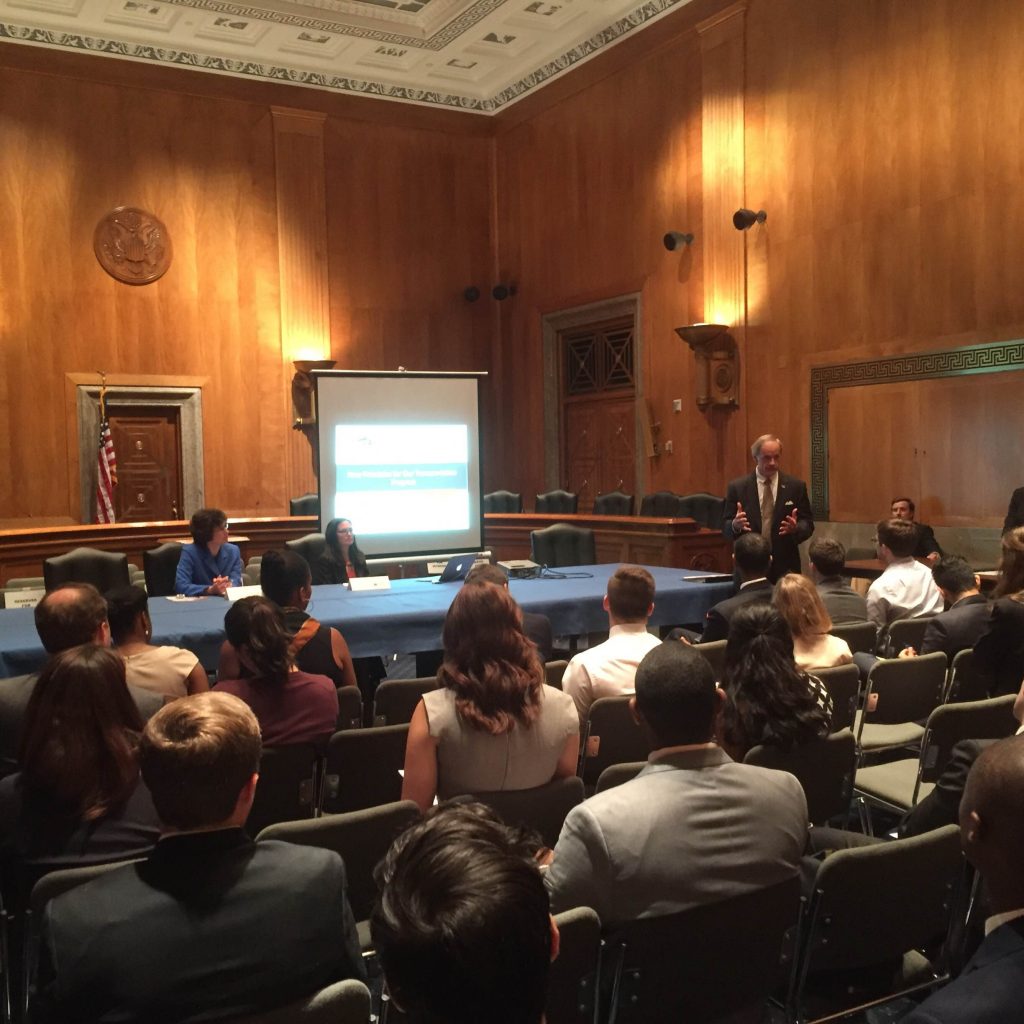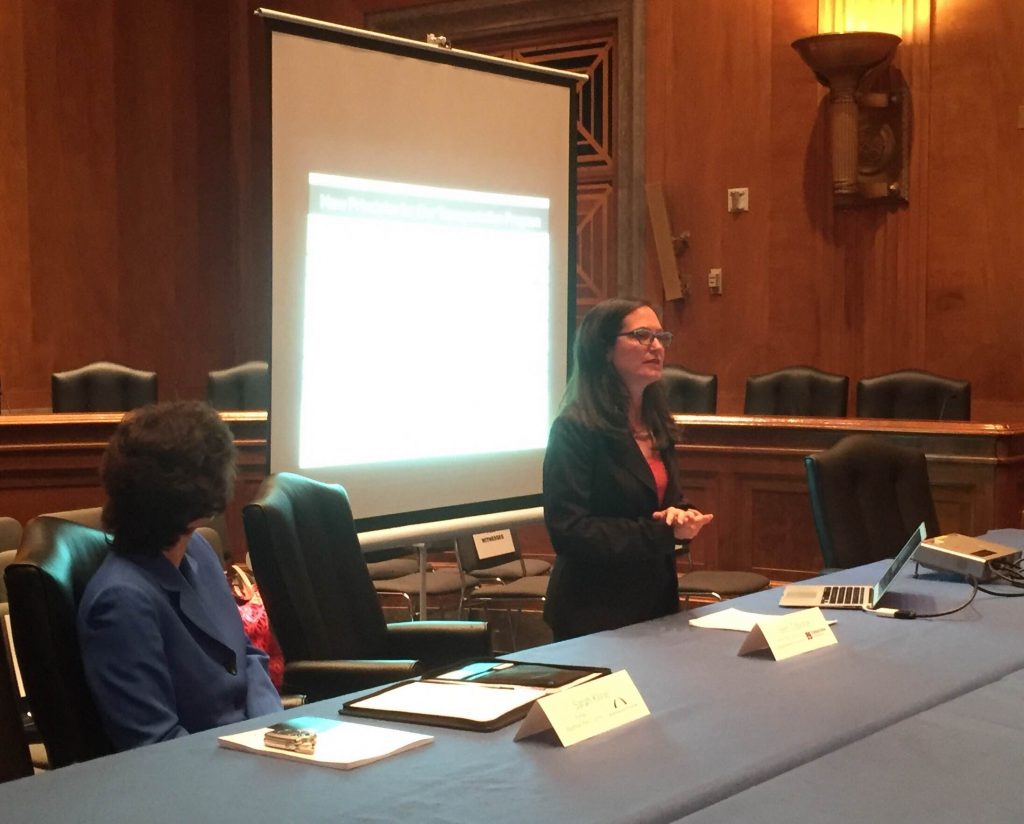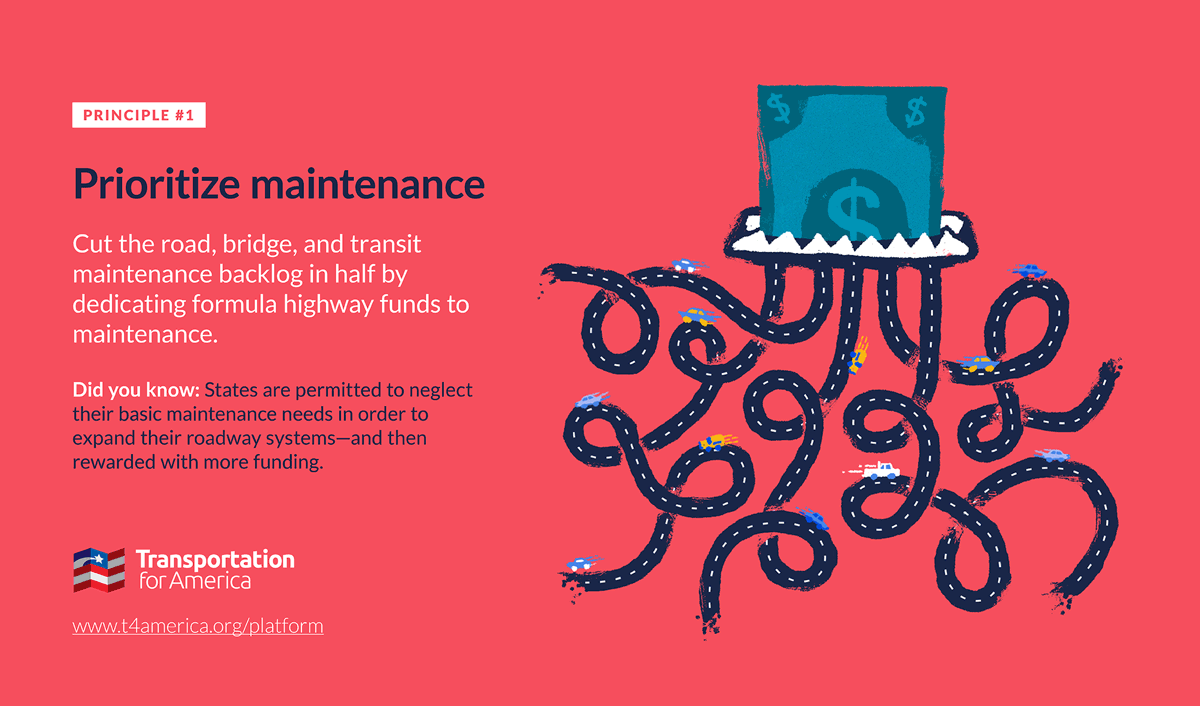How can we reinvigorate and refocus our country’s transportation program?
Though the FAST Act is just six months into its five-year lifespan, it’s never too early to start discussing how to overhaul the outdated priorities of our nation’s transportation policy — especially when Congress failed to address them in that five-year transportation bill. One of our experts was a featured guest in a congressional briefing intended to move that conversation along.
Beth Osborne, senior transportation advisor for T4America, discussed these ideas at a short briefing on Capitol Hill entitled New Vision, Principles and Funding to Reinvigorate the Transportation Program, organized by Senator Tom Carper (D-DE) and Rep. Earl Blumenauer (D-OR).

Senator Carper introducing the briefing on Wednesday, June 15th.
We hear a lot about how the gas tax has lost its value and we need to find ways to increase funding for our country’s transportation system. While this is all true, we also must use our existing resources far better.

Beth Osborne presenting at the briefing
In New Principles for Our Transportation Program, a report Beth Osborne recently penned for The Century Foundation, she laid out four key changes we should make, which she presented in yesterday’s hearing: fix what we have first, focus on moving people and goods instead of vehicles, use competition to spur innovation, and come up with an honest way to fund transportation that doesn’t depend on general tax dollars to shore up an outdated, broken funding mechanism.
While a lot in Congress point to the need for more funding, “there is a lot that is not understood about the problem,” Beth suggested.
“There’s a disconnect between the policy, programs and the way the money is spent.” When faced with a funding shortfall, rather than assessing how bad development decisions drive the need for further transportation investments, Beth asked the crowd while referring to the map below, “is this really a funding problem or a planning problem we [federal government] are being asked to pay for?” she asked.
Denham Springs, LA, where even a short trip requires a car
One way to spend money more wisely is to find ways to award it to the best projects, rather than formulas that spread money around like peanut butter across states, regardless of need or merit, funding as many (if not more) ill-conceived projects as wise ones.
“Competition in TIGER and other programs provide a great incentive for bringing in the best possible projects and generating innovation,” she said. “But more competitive funding programs and better measures of success are needed.”
Private investment and more public-private partnerships have been regularly invoked by members of Congress across the political spectrum as solutions to the funding shortfall for transportation, but why don’t we see more public-private partnerships (P3s), and how can local communities ensure they’re getting a good deal?
Beth was joined in the briefing by T4America alumnus Sarah Kline, who just wrote a paper for the Bipartisan Policy Center showcasing practical solutions that can get support from both parties, focusing also on what the private sector can do to meet more of America’s infrastructure needs.
One suggestion was that projects need to have a clear statement of public benefit before receiving any public funds — what should the public expect to receive for their investment? Projects also need a full accounting of life-cycle costs. Whether a P3 or not, too many municipalities have a solid plan for upfront costs and aren’t prepared for maintenance or operation costs with projects down the road.
We were grateful to be invited to speak by Rep. Blumenauer and Sen. Carper and look forward to continuing this incredibly important debate.



















